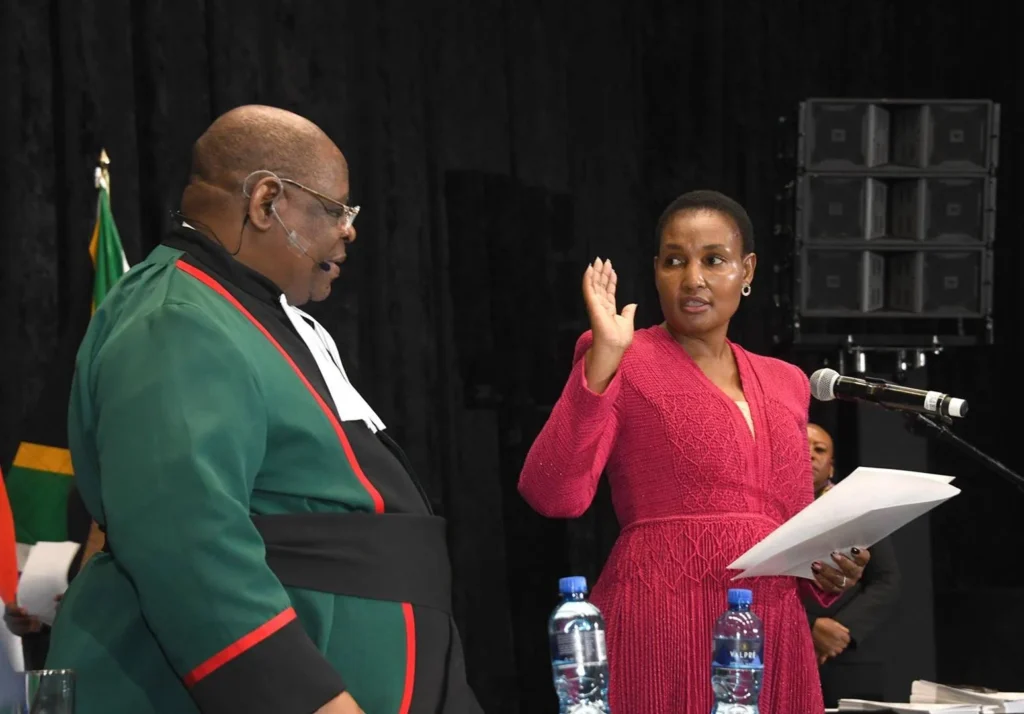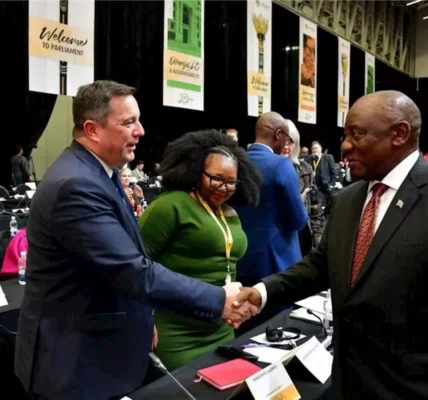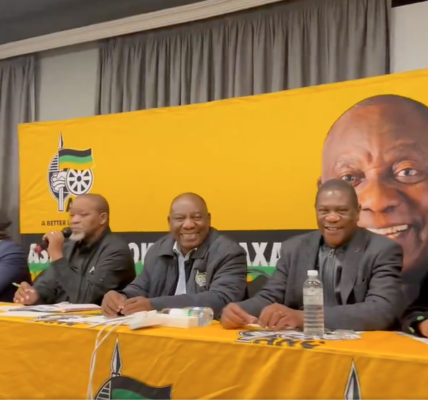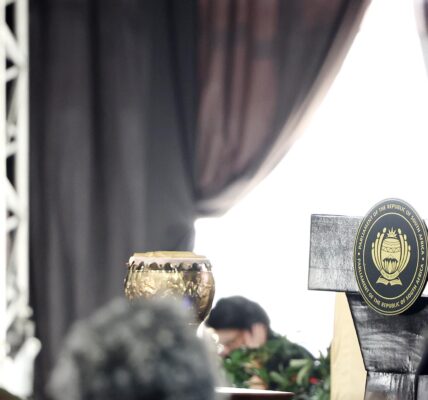
Consulting firm McKinsey paid a fine of $122 million as part of a settlement with US authorities for its involvement in state capture in South Africa. While this marks progress in addressing a chapter of South Africa’s history of state capture that drained tens of billions of dollars from the economy, efforts to reverse the damage have been slow. South Africa has also not been able to root out corruption according to prof Theo Venter who said state capture is still continuing but at a slower pace.
Venter told National Security News in an interview that state capture, as a form of institutional corruption, continues through what he described as extractive politics. The African National Congress (ANC), he said, “is a textbook example of extractive politics.”
“The investment the ANC made through its membership and various involvements underpins what we call state capture. While it may be happening at a lower level now, it is still continuing,” Venter explained.
Ramaphosa Cabinet shuffle fail to address corruption allegations
Venter highlighted the example of South Africa’s Minister of Justice and Constitutional Development, Thembi Nkadimeng-Simelane, who has faced allegations of bribery. Rather than addressing these accusations, President Cyril Ramaphosa opted to reshuffle his cabinet, moving Nkadimeng-Simelane to the role of Minister of Human Settlements.
“Now you can almost feel the conflict of interest when someone facing such allegations is simply moved to another position,” said Venter. “The best the president could have done was to put her on special leave, saying, ‘I won’t fire you until you are formally accused or charged in court.’ Instead, he just moved her from one deck chair to another. That’s not good enough.”
McKinsey’s efforts to shed ‘albatross’ of corruption
McKinsey’s link to the Gupta family in the state capture scandal primarily stemmed from its partnership with Trillian, a company connected to the Guptas. The consulting firm was accused of allowing funds from Eskom, South Africa’s energy utility, to be diverted to Trillian and, indirectly, to the Guptas as part of securing contracts.
McKinsey has since agreed to return the fees it earned, along with interest, to the affected entities. “I think McKinsey decided that their global reputation was too important to carry the albatross of bribery and corruption in South Africa,” said Venter.
In a statement, McKinsey said it “welcomes the resolution of these matters and closure of this unfortunate situation.” The company added that it had cooperated with authorities and made “significant improvements” to its risk, legal, and compliance controls.
US role in in fighting global corruption
The US had earlier also played a role in forcing Hitachi, the Japanese group to pay a $19 million settlement to US regulatory charges that it inaccurately recorded improper payment to the ANC in connection with contracts to build two power plants.
The case cantered on Hitachi’s sale of a 25% stake in its South African subsidiary to Chancellor House, the ANC’s investment arm, in 2005. Following this, Hitachi secured multibillion-dollar contracts from Eskom to build boiler units at two coal-fired plants. Although Hitachi neither admitted nor denied the allegations, it agreed to settle the charges.
Potential erosion of FBI under Trump
McKinsey’s settlement was facilitated by the U.S. Department of Justice (DOJ), which enforces the Foreign Corrupt Practices Act (FCPA). This law prohibits U.S. companies and their subsidiaries from bribing foreign officials to gain business advantages.
FBI Assistant Director Chad Yarbrough commented on McKinsey’s case, saying, “McKinsey Africa engaged in a serious and long-running bribery scheme to secure contracts by corrupting government officials. This misconduct is a blatant violation of the law and a breach of public trust. No matter what country the crime occurs in, the FBI will always work closely with our international partners to root out corruption.”
However, Prof. Venter expressed concern that the strength of U.S. institutions like the DOJ could be undermined under a second Trump administration. He noted, “Actions against corporate corruption start with the FBI, and these institutions have largely been apolitical. But if you look at Trump’s appointments, he tends to politicize institutions, which could weaken the American system. That would be bad news for global efforts against corruption.”
Zondo Commission and continuing challenges
The pervasive nature of state corruption in South Africa was extensively documented by the Zondo Commission, chaired by former Chief Justice Raymond Zondo, which was established in January 2018.
Despite signs of progress, organisations like Corruption Watch remain sceptical about sustained improvements. Corruption Watch Director Karam Sing said, “The fight against corruption still feels like a one step forward, one step back situation.”
Whistleblowers are “thrown under the bus”
Prof. Venter noted that in cases of corruption involving McKinsey and the ongoing corruption in South Africa, whistleblowers—who should be regarded as the real heroes—are often “thrown under the bus.” “I am not only thinking of the McKinsey whistleblowers but also those in the medical field, in hospitals in Gauteng, and at Eskom. Some have been assassinated, while others have been dismissed. It is really difficult for whistleblowers, despite the presence of good legislation.”
He explained that whistleblowers struggle to find jobs at other companies because they are labelled as “whistleblowers.” “Now everybody is scared that you will do similar things. The culture and attitude need to change; if things go wrong and you can clearly see corruption, then it’s your responsibility to do something about it. We’re not yet there.”




























































































































































































































































































